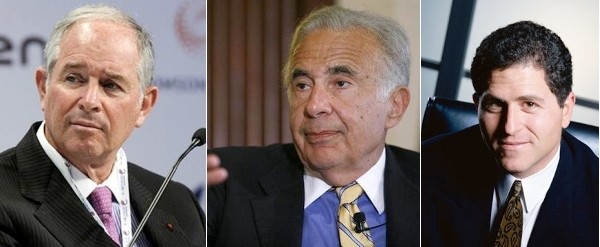Last month, Dell officially announced plans to go off the publicly-traded stock market and into private hands. The buyout offer came from founder Michael Dell himself and a handful of investment firms to the tune of $24.4 billion, or about $13.65 per share. But now two alternative takeover proposals have surfaced: one from activist investor Carl Icahn and the other from a private-equity fund managed by Blackstone Group LP.
Both offers are higher than the original $13.65 per share bid, too. Blackstone says its offer would value Dell in excess of $14.25 per share, while Icahn values his offer at $15 a share. The key difference is that either offer requires a public equity stub – meaning some shares would remain public – so despite paying more per share they are not necessarily spending more overall than the $24.4 billion offered by Michael Dell and partners.

There's a good and not so good side for this depending on your view. As the Wall Street Journal explains, on one hand this so-called stub provides an opportunity for those interested to hold on to their existing shares in the hopes of making more money from a company turnaround. On the other, it makes it harder for a new CEO to execute if he has to answer to public shareholders, which is what Michael Dell wanted to avoid in the first place.
At least a couple of holders with more than 10% of Dell shares have already said they'd like to keep them.
Financing doesn't appear to be firm for the Blackstone or Icahn offers, however. More information will need to provided before the "go shop" deadline on Friday so the special committee overseeing Dell's buyout is able to determine whether the offers in fact constitute a superior proposal to the existing merger agreement.
Michael Dell, who still owns 15% of the shares of the company he started in his college dorm room, has said he is willing to explore in good faith the possibility of working with third parties on the alternate takeover proposals.